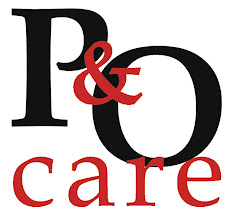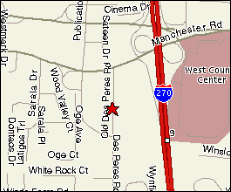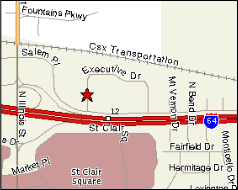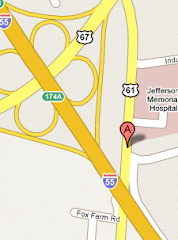LSU School of Veterinary Medicine Performed Rare Surgery on Hurricane Survivor Pony
Just north of New Orleans, in the quiet community of St. Rose, Louisiana, Kaye Harris provides a haven for small ponies. She takes them to birthday parties and celebratory events throughout the south, making a business and a life for herself and her horses.
Just north of New Orleans, in the quiet community of St. Rose, Louisiana, Kaye Harris provides a haven for small ponies. She takes them to birthday parties and celebratory events throughout the south, making a business and a life for herself and her horses.
But as it did for many residents in the New Orleans area, Hurricane Katrina changed all of that. In spite of her own trials, Harris ventured out in the days following the storm and effectively turned her small farm – "Pony Paradise" – into a rescue facility for a number of animals in need of shelter.
In the months following Hurricanes Katrina and Rita, Kaye Harris returned home one day to find her rescued pony, Molly, being attacked by a rescued pit bull. Molly’s wounds were extensive and, for a time, Harris seriously doubted whether the 15-year-old, gray, Pony of the Americas would survive at all.
After contacting her local veterinarian, Dr. Allison Denny-Barca, the two immediately worked to save Molly. Her wounds were grave. Lacerations were found on her head and neck, across her abdomen, and down to the bone on her leg. Over time, all of her wounds healed except the ones on her right front leg. It became apparent that the lower part of the limb had lost its blood supply and was severely compromised.
After contacting Dr. Rustin Moore, director of the Equine Health Studies Program at the LSU School of Veterinary Medicine, Harris and Barca brought Molly in for evaluation and consideration as a candidate for surgery. It would be a surgery that LSU veterinarians had never performed on a horse – amputation and the fitting of a prosthetic leg.
"Amputation is not commonly done on a horse or pony," said Moore. "The main reason is that adult horses are not very good at living on three legs because the opposite leg of the one missing usually fails."
Considering the wounds the right foreleg had sustained, it was the only option remaining. On January 16, Molly’s right front leg was amputated just below the knee. Initially, LSU doctors fitted her with a cast that included a built-in temporary prosthetic. As the hours passed, Molly continually rested herself, alternating sides and agreeably undergoing each evaluation.
"She made it obvious she understood she was in trouble," said Moore. "Her relatively small size and her attitude, intelligence, and courage were the biggest factors that led us to believe that, for this type of procedure, she was as ideal a candidate as we could ever hope for. The other important factor is having a truly committed owner who is dedicated to providing the daily care required for Molly."
As LSU surgeons worked to rid Molly of infection, Barca was busy trying to locate a company that could build Molly a permanent prosthetic. She and Harris contacted Dwayne Mara, Clinical Perfusionist with Bayou Orthotic and Prosthetic Center in New Orleans, Louisiana.
Molly was one of his first clients when the business relocated and reopened following the storm. She was also his first equine client.
"I was overwhelmed; I really didn’t know what to think," said Mara, who had designed artificial limbs for people for eight years but had no experience with horses. After developing Molly’s first permanent prosthetic, however, he was so captivated by his experience that he is currently crafting the fourth rendition of her new artificial leg, each one continually increasing in fit and comfort.

"Every time I see her, knowing she’s walking and getting around, I just love it. I’m really interested in it and really more than I thought I would be," Mara said.
Molly walked out of surgery on a temporary cast. By the time she received the first edition of her permanent prosthesis on Valentine’s Day, she was moving about, even jogging occasionally and cantering as if she had no disability at all.
Molly walked out of surgery on a temporary cast. By the time she received the first edition of her permanent prosthesis on Valentine’s Day, she was moving about, even jogging occasionally and cantering as if she had no disability at all.
"The prosthetic device is amazing. Even without it, Molly does really well, but the prosthetic has given her a whole new life,” said Barca. “And she asks for it. She’s amazing. She will put her little limb out and come to you and let you know that she wants you to put it on. Sometimes she wants you to take it off, too."
Currently, Molly spends her days at Pony Paradise and visits Barca’s stable regularly on the Mississippi River levee for a physical check up and minor prosthetic adjustments.
"While out on the levee, she usually doesn’t try to get away from me," Barca said. "But occasionally she will drag your butt down the levee ... she’ll tow you! It can be pretty bad when you can’t catch a three-legged horse."
As Molly’s condition continues to progress, she has been able to continue her influence as an ambassador to children who have had life-altering illnesses or injuries themselves. Molly has begun to make visitations to children’s hospitals as a therapeutic friend to offer hope and comfort, and to continue to inspire those around her.
As Molly’s condition continues to progress, she has been able to continue her influence as an ambassador to children who have had life-altering illnesses or injuries themselves. Molly has begun to make visitations to children’s hospitals as a therapeutic friend to offer hope and comfort, and to continue to inspire those around her.
"To me, she is a symbol of New Orleans. You know, if you ask me, New Orleans had its leg chopped off, but it can survive," said Harris. "Maybe we’ll need a prosthetic for New Orleans for a while but you know what, we can survive. That is the spirit of New Orleans, and this city can come back. Molly has come back, and she’s going on to bigger and better things. She’s not back to normal; she’s gonna be better."





No comments:
Post a Comment